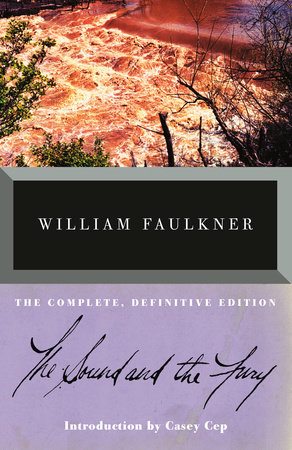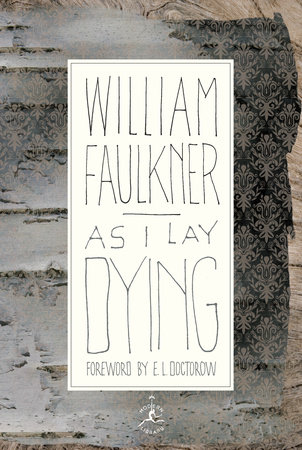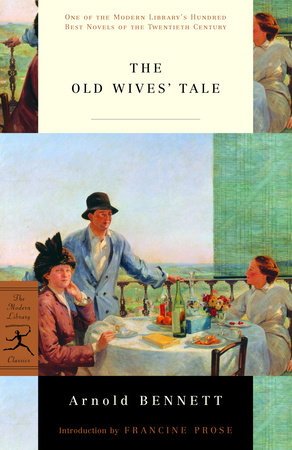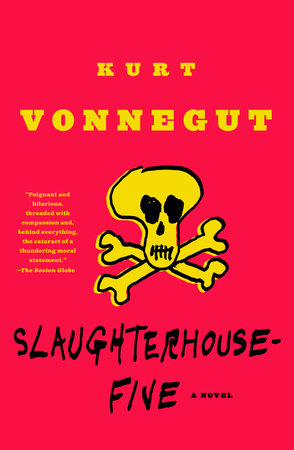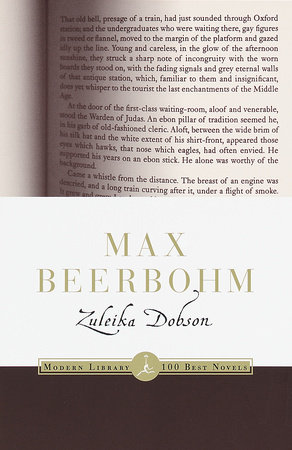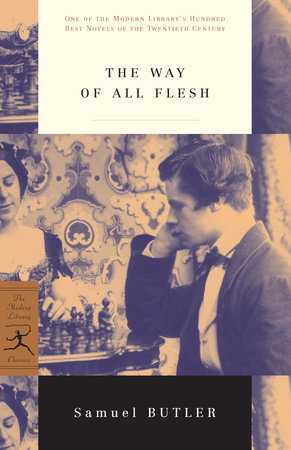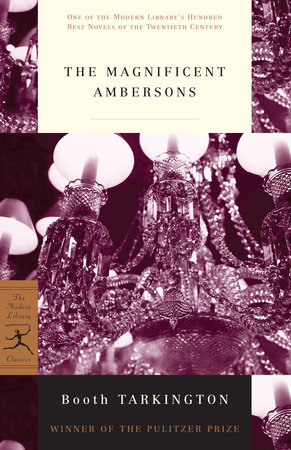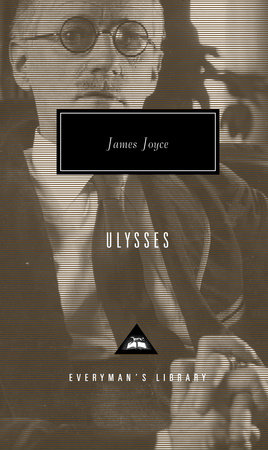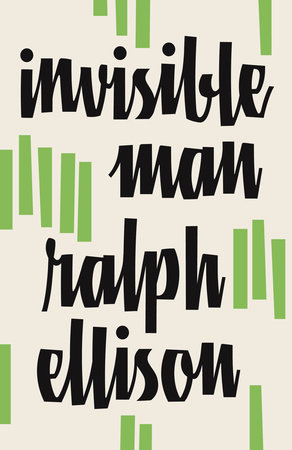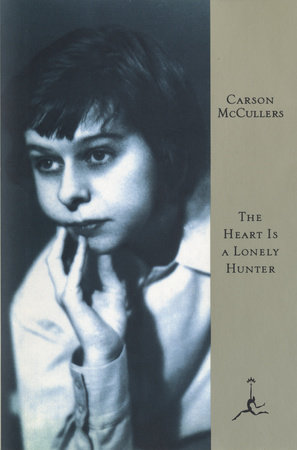Excerpt
The Sound and the Fury
April Seventh, 1928.
Through the fence, between the curling flower spaces, I could see them hitting. They were coming toward where the flag was and I went along the fence. Luster was hunting in the grass by the flower tree. They took the flag out, and they were hitting. Then they put the flag back and they went to the table, and he hit and the other hit. Then they went on, and I went along the fence. Luster came away from the flower tree and we went along the fence and they stopped and we stopped and I looked through the fence while Luster was hunting in the grass.
"Here, caddie." He hit. They went away across the pasture. I held to the fence and watched them going away.
"Listen at you, now." Luster said. "Aint you something, thirty three years old, going on that way. After I done went all the way to town to buy you that cake. Hush up that moaning. Aint you going to help me find that quarter so I can go to the show tonight."
They were hitting little, across the pasture. I went back along the fence to where the flag was. It flapped on the bright grass and the trees.
"Come on." Luster said. "We done looked there. They aint no more coming right now. Les go down to the branch and find that quarter before them niggers finds it."
It was red, flapping on the pasture. Then there was a bird slanting and tilting on it. Luster threw. The flag flapped on the bright grass and the trees. I held to the fence.
"Shut up that moaning." Luster said. "I cant make them come if they aint coming, can I. If you dont hush up, mammy aint going to have no birthday for you. If you dont hush, you know what I going to do. I going to eat that cake all up. Eat them candles, too. Eat all them thirty three candles. Come on, les go down to the branch. I got to find my quarter. Maybe we can find one of they balls. Here. Here they is. Way over yonder. See." He came to the fence and pointed his arm. "See them. They aint coming back here no more. Come on."
We went along the fence and came to the garden fence, where our shadows were. My shadow was higher than Luster's on the fence. We came to the broken place and went through it.
"Wait a minute." Luster said. "You snagged on that nail again. Cant you never crawl through here without snagging on that nail."
Caddy uncaught me and we crawled through. Uncle Maury said to not let anybody see us, so we better stoop over, Caddy said. Stoop over, Benjy. Like this, see. We stooped over and crossed the garden, where the flowers rasped and rattled against us. The ground was hard. We climbed the fence, where the pigs were grunting and snuffing. I expect they're sorry because one of them got killed today, Caddy said. The ground was hard, churned and knotted.
Keep your hands in your pockets, Caddy said. Or they'll get froze. You dont want your hands froze on Christmas, do you.
"It's too cold out there." Versh said. "You dont want to go out doors."
"What is it now." Mother said.
"He want to go out doors." Versh said.
"Let him go." Uncle Maury said.
"It's too cold." Mother said. "He'd better stay in. Benjamin. Stop that, now."
"It wont hurt him." Uncle Maury said.
"You, Benjamin." Mother said. "If you dont be good, you'll have to go to the kitchen."
"Mammy say keep him out the kitchen today." Versh said. "She say she got all that cooking to get done."
"Let him go, Caroline." Uncle Maury said. "You'll worry yourself sick over him."
"I know it." Mother said. "It's a judgment on me. I sometimes wonder."
"I know, I know." Uncle Maury said. "You must keep your strength up. I'll make you a toddy."
"It just upsets me that much more." Mother said. "Dont you know it does."
"You'll feel better." Uncle Maury said. "Wrap him up good, boy, and take him out for a while."
Uncle Maury went away. Versh went away.
"Please hush." Mother said. "We're trying to get you out as fast as we can. I dont want you to get sick."
Versh put my overshoes and overcoat on and we took my cap and went out. Uncle Maury was putting the bottle away in the sideboard in the diningroom.
"Keep him out about half an hour, boy." Uncle Maury said. "Keep him in the yard, now."
"Yes, sir." Versh said. "We dont never let him get off the place."
We went out doors. The sun was cold and bright.
"Where you heading for." Versh said. "You dont think you going to town, does you." We went through the rattling leaves. The gate was cold. "You better keep them hands in your pockets." Versh said. "You get them froze onto that gate, then what you do. Whyn't you wait for them in the house." He put my hands into my pockets. I could hear him rattling in the leaves. I could smell the cold. The gate was cold.
"Here some hickeynuts. Whooey. Git up that tree. Look here at this squirl, Benjy."
I couldn't feel the gate at all, but I could smell the bright cold.
"You better put them hands back in your pockets."
Caddy was walking. Then she was running, her book-satchel swinging and jouncing behind her.
"Hello, Benjy." Caddy said. She opened the gate and came in and stooped down. Caddy smelled like leaves. "Did you come to meet me." she said. "Did you come to meet Caddy. What did you let him get his hands so cold for, Versh."
"I told him to keep them in his pockets." Versh said. "Holding on to that ahun gate."
"Did you come to meet Caddy," she said, rubbing my hands. "What is it. What are you trying to tell Caddy." Caddy smelled like trees and like when she says we were asleep.
What are you moaning about, Luster said. You can watch them again when we get to the branch. Here. Here's you a jimson weed. He gave me the flower. We went through the fence, into the lot.
"What is it." Caddy said. "What are you trying to tell Caddy. Did they send him out, Versh."
"Couldn't keep him in." Versh said. "He kept on until they let him go and he come right straight down here, looking through the gate."
"What is it." Caddy said. "Did you think it would be Christmas when I came home from school. Is that what you thought. Christmas is the day after tomorrow. Santy Claus, Benjy. Santy Claus. Come on, let's run to the house and get warm." She took my hand and we ran through the bright rustling leaves. We ran up the steps and out of the bright cold, into the dark cold. Uncle Maury was putting the bottle back in the sideboard. He called Caddy. Caddy said,
"Take him in to the fire, Versh. Go with Versh." she said. "I'll come in a minute."
We went to the fire. Mother said,
"Is he cold, Versh."
"Nome." Versh said.
"Take his overcoat and overshoes off." Mother said. "How many times do I have to tell you not to bring him into the house with his overshoes on."
"Yessum." Versh said. "Hold still, now." He took my overshoes off and unbuttoned my coat. Caddy said,
"Wait, Versh. Cant he go out again, Mother. I want him to go with me."
"You'd better leave him here." Uncle Maury said. "He's been out enough today."
"I think you'd both better stay in." Mother said. "It's getting colder, Dilsey says."
"Oh, Mother." Caddy said.
"Nonsense." Uncle Maury said. "She's been in school all day. She needs the fresh air. Run along, Candace."
"Let him go, Mother." Caddy said. "Please. You know he'll cry."
"Then why did you mention it before him." Mother said. "Why did you come in here. To give him some excuse to worry me again. You've been out enough today. I think you'd better sit down here and play with him."
"Let them go, Caroline." Uncle Maury said. "A little cold wont hurt them. Remember, you've got to keep your strength up."
"I know." Mother said. "Nobody knows how I dread Christmas. Nobody knows. I am not one of those women who can stand things. I wish for Jason's and the children's sakes I was stronger."
"You must do the best you can and not let them worry you." Uncle Maury said. "Run along, you two. But dont stay out long, now. Your mother will worry."
"Yes, sir." Caddy said. "Come on, Benjy. We're going out doors again." She buttoned my coat and we went toward the door.
"Are you going to take that baby out without his overshoes." Mother said. "Do you want to make him sick, with the house full of company."
"I forgot." Caddy said. "I thought he had them on."
We went back. "You must think." Mother said. Hold still now Versh said. He put my overshoes on. "Someday I'll be gone, and you'll have to think for him." Now stomp Versh said. "Come here and kiss Mother, Benjamin."
Caddy took me to Mother's chair and Mother took my face in her hands and then she held me against her.
"My poor baby." she said. She let me go. "You and Versh take good care of him, honey."
"Yessum." Caddy said. We went out. Caddy said,
"You needn't go, Versh. I'll keep him for a while."
"All right." Versh said. "I aint going out in that cold for no fun." He went on and we stopped in the hall and Caddy knelt and put her arms around me and her cold bright face against mine. She smelled like trees.
"You're not a poor baby. Are you. Are you. You've got your Caddy. Haven't you got your Caddy."
Cant you shut up that moaning and slobbering, Luster said. Aint you shamed of yourself, making all this racket. We passed the carriage house, where the carriage was. It had a new wheel.
"Git in, now, and set still until your maw come." Dilsey said. She shoved me into the carriage. T. P. held the reins. "Clare I dont see how come Jason wont get a new surrey." Dilsey said. "This thing going to fall to pieces under you all some day. Look at them wheels."
Mother came out, pulling her veil down. She had some flowers.
"Where's Roskus." she said.
"Roskus cant lift his arms, today." Dilsey said. "T. P. can drive all right."
"I'm afraid to." Mother said. "It seems to me you all could furnish me with a driver for the carriage once a week. It's little enough I ask, Lord knows."
"You know just as well as me that Roskus got the rheumatism too bad to do more than he have to, Miss Cahline." Dilsey said. "You come on and get in, now. T. P. can drive you just as good as Roskus."
"I'm afraid to." Mother said. "With the baby."
Dilsey went up the steps. "You calling that thing a baby." she said. She took Mother's arm. "A man big as T. P. Come on, now, if you going."
"I'm afraid to." Mother said. They came down the steps and Dilsey helped Mother in. "Perhaps it'll be the best thing, for all of us." Mother said.
"Aint you shamed, talking that way." Dilsey said. "Dont you know it'll take more than a eighteen year old nigger to make Queenie run away. She older than him and Benjy put together. And dont you start no projecking with Queenie, you hear me. T. P. If you dont drive to suit Miss Cahline, I going to put Roskus on you. He aint too tied up to do that."
"Yessum." T. P. said.
"I just know something will happen." Mother said. "Stop, Benjamin."
"Give him a flower to hold." Dilsey said. "That what he wanting." She reached her hand in.
"No, no." Mother said. "You'll have them all scattered."
"You hold them." Dilsey said. "I'll get him one out." She gave me a flower and her hand went away.
"Go on now, fore Quentin see you and have to go too." Dilsey said.
"Where is she." Mother said.
"She down to the house playing with Luster." Dilsey said. "Go on, T. P. Drive that surrey like Roskus told you, now.
"Yessum." T. P. said. "Hum up, Queenie."
"Quentin." Mother said. "Dont let "
"Course I is." Dilsey said.
The carriage jolted and crunched on the drive. "I'm afraid to go and leave Quentin." Mother said. "I'd better not go. T. P." We went through the gate, where it didn't jolt anymore. T. P. hit Queenie with the whip.
"You, T. P." Mother said.
"Got to get her going." T. P. said. "Keep her wake up till we get back to the barn."
"Turn around." Mother said. "I'm afraid to go and leave Quentin."
"Cant turn here." T. P. said. Then it was broader.
"Cant you turn here." Mother said.
"All right." T. P. said. We began to turn.
"You, T. P." Mother said, clutching me.
"I got to turn around some how." T. P. said. "Whoa, Queenie." We stopped.
"You'll turn us over." Mother said.
"What you want to do, then." T. P. said.
"I'm afraid for you to try to turn around." Mother said.
"Get up, Queenie." T. P. said. We went on.
"I just know Dilsey will let something happen to Quentin while I'm gone." Mother said. "We must hurry back."
"Hum up, there." T. P. said. He hit Queenie with the whip.
"You, T. P." Mother said, clutching me. I could hear Queenie's feet and the bright shapes went smooth and steady on both sides, the shadows of them flowing across Queenie's back. They went on like the bright tops of wheels. Then those on one side stopped at the tall white post where the soldier was. But on the other side they went on smooth and steady, but a little slower.
"What do you want." Jason said. He had his hands in his pockets and a pencil behind his ear.
"We're going to the cemetery." Mother said.
"All right." Jason said. "I dont aim to stop you, do I. Was that all you wanted with me, just to tell me that."
"I know you wont come." Mother said. "I'd feel safer if you would."
"Safe from what." Jason said. "Father and Quentin cant hurt you."
Mother put her handkerchief under her veil. "Stop it, Mother." Jason said. "Do you want to get that damn looney to bawling in the middle of the square. Drive on, T. P.
"Hum up, Queenie." T. P. said.
"It's a judgment on me." Mother said. "But I'll be gone too, soon."
"Here." Jason said.


